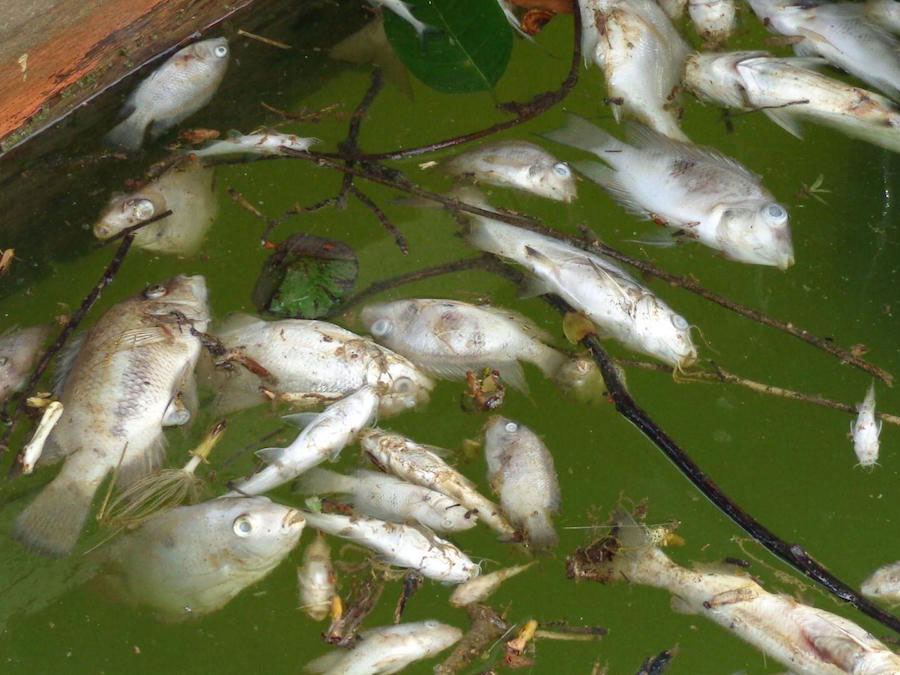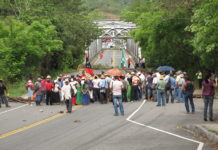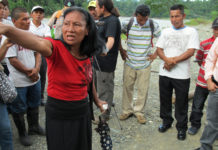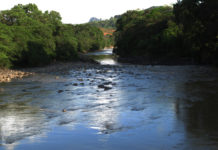
Accused of ‘ecocide’ by local communities and environmentalists, Empresa Reforestada de Palma de Petén (REPSA), a Spanish-owned African palm oil company with extensive plantations in the Petén region of Guatemala, has failed to overturn a court-ordered suspension of works.
In September 2015, Judge Karla Hernández of the Petén Environmental Crimes Court demanded the company to cease operations pending an investigation into alleged criminal negligence that has resulted in catastrophic fish die-off in the La Pasión River.
Last week, a small group of residents sympathetic to REPSA appealed the decision and lost, marking an important victory for local campaigners and international organizations seeking wider recognition of ‘ecocide’ as an international crime against peace. According to a proposed amendment to the Rome Statute:
“Ecocide is the extensive damage to, destruction of or loss of ecosystem(s) of a given territory, whether by human agency or by other causes, to such an extent that peaceful enjoyment by the inhabitants of that territory has been or will be severely diminished.”
The world was first alerted to the ecocide in the La Pasíon after thousands of dead fish began washing up on the riverbanks near the Mexican border.
According to Guatemala’s National Council for Protected Areas, some 23 fish species have been impacted along with 21 species of birds, reptiles, mammals. The exact number of dead animals is not known, but may number millions.
According to Rosalito Barrios of the University of San Carlos de Guatemala, the die-off was likely caused by a 70 centimetre thick layer of chemical run-off washed into the river after heavy rains. The run-off is believed to have consisted mainly of the pesticide Malathion.
“We can call the case a crime against humanity, because not only were various species of the river dying, but the river is also part of our historical culture, or our territory,” said Saul Paau, a Maya Q’eqchi leader speaking to the Guatemala Indymedia Center. “We get our food from it, and the contamination and the fish deaths today have violated the food security of all of us.”
The river, which runs through western Petén and once served as a vital trade corridor for the ancient Mayas, is currently used for fishing, bathing, agriculture, and drinking water by at least 12,000 people from 17 communities. Some inhabitants have reported symptoms of poisoning such as skin welts, fever, headaches, nausea, and diarrhea.
Historically, the dispute between REPSA and local communities has been both volatile and ugly. A lawsuit against the company was first filed on June 11, 2015 by a collective of local groups and cooperatives known as the Commission for the Defence of life and Nature. On September 18, 2015, one of its leaders, Rigoberto Lima Choc, 28, was murdered outside a courthouse in the town of Sayaxché – one day after REPSA was ordered to cease operations.
On the same day, three human rights defenders were kidnapped on the Cobán-Sayxché highway and threatened with being burned alive. They were subsequently released amid speculation that a company official from REPSA had coordinated the crime.
According to the Guatemalan newspaper La Hora, REPSA was able to restart its operations last November pending the ruling in the appellate court. Whether or not the new ruling will now be sufficient to rein in the company remains to be seen. Guatemala is one of the world’s top ten producers of palm oil and a litany of human rights and environmental abuses are associated with the industry.
Source: Latin Correspondent [Archived]
Image: El Informante Petenero










